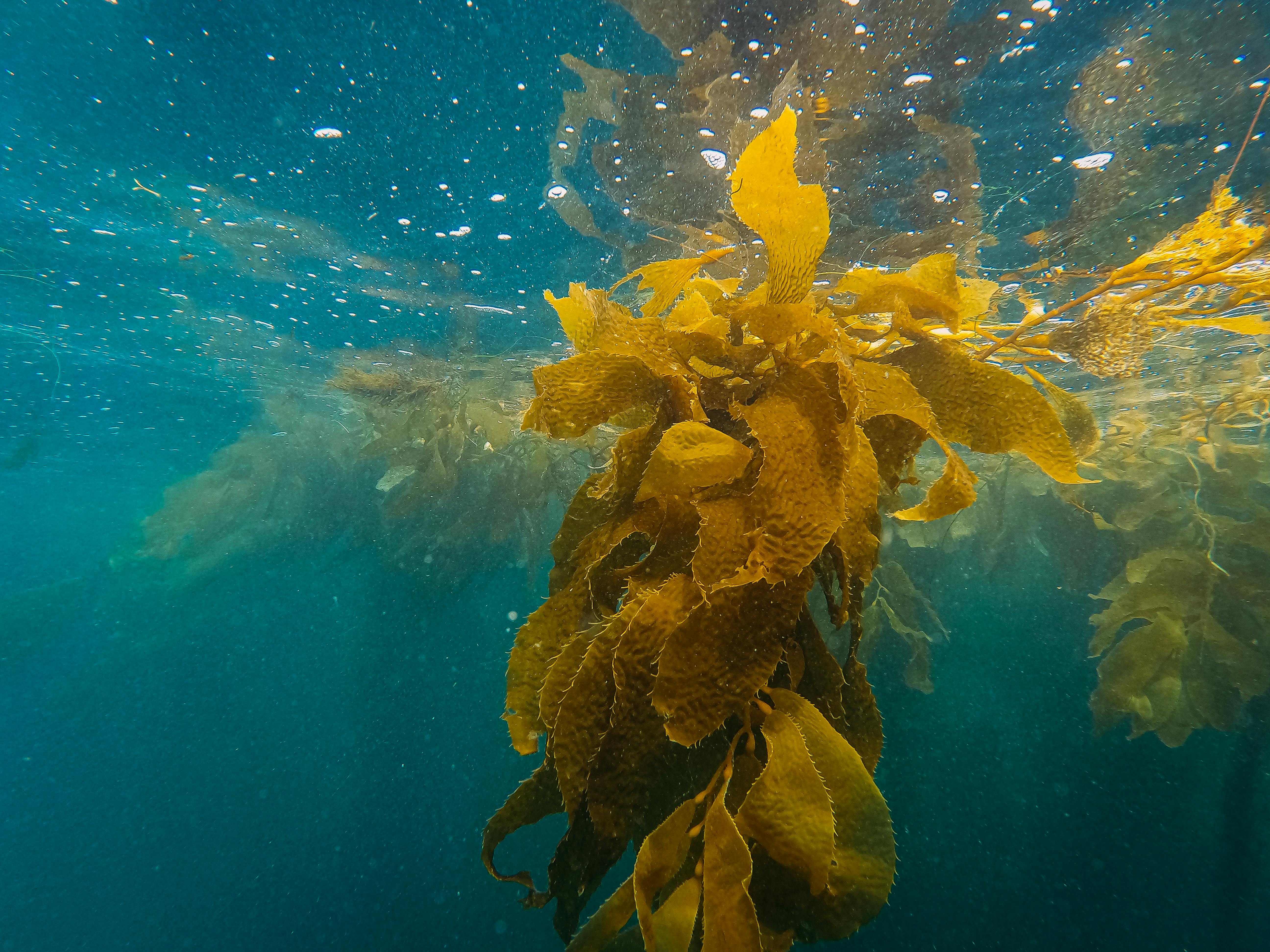New global research initiative investigates carbon sequestration potential of kelp
26 January 2024
Could kelp be a secret weapon in the fight against climate change? A new research project aims to answer that question by better understanding how kelp contributes to carbon sequestration in our oceans.
The international collaboration, led by Aotearoa New Zealand’s Cawthron Institute with partners Sequench (NZ), Kelp Forest Foundation (Netherlands), and NatureMetrics (UK), has been funded by Oceankind – an organisation that supports initiatives to improve ocean health.
Project leader Dr Xavier Pochon of Cawthron Institute said seaweeds, in particular kelp, could be a significant source of the carbon sequestered in the ocean.
“Up until now, kelp’s contribution to the carbon cycle has remained unknown because we have not had the tools to measure it, so we’ve assembled a project team with the expertise to unlock this important information,” Pochon said.
“Our challenge is to quantify the kelp-derived carbon in marine sediments which would revolutionise our comprehension of the role kelp forests’ are playing in the global carbon cycle and their potential for climate change mitigation.”
Pochon said Cawthron Institute holds expertise in the development and application of state-of-the-art eDNA technology that they apply in aquatic environments to tackle some of the biggest environmental challenges of our time, including climate change, biodiversity loss and food security.
“For this project we look forward to working with our world leading research partners to build a kelp genomic library and use leading edge molecular diagnostic tools to estimate the amount of kelp-derived organic matter that is stored in marine sediments and surrounding environments.”
Traditional methods of measuring kelp-derived carbon in marine sediments, such as stable isotope, pigments, and lipid analysis, have been limited in their ability to accurately detect and identify kelp-derived carbon in marine sediments. This project’s approach leverages the power of environmental DNA, which involves the extraction of genetic material directly from environmental samples without any obvious signs of biological source material.
“Our partners at Sequench, NatureMetrics and the Kelp Forest Foundation are all global experts in this field, so we’ve established a real ‘dream team’ of research organisations to tackle this challenge together.”
“If this project demonstrates that eDNA is a reliable and traceable marker for tracking giant kelp-derived carbon, it will allow for more accurate assessment of carbon sequestration potential in kelp forests. Successfully identifying and quantifying giant kelp DNA in sediment samples will establish a direct link between source and sink habitats, informing conservation and blue carbon initiatives.”
Elif Demir-Hilton, advisor at Oceankind, said the project represents a significant step forward in ocean conservation and sustainability.
“We are happy to support this strategic partnership to design and test molecular tools for species-specific carbon tracing. The capacity to track the fate of kelp carbon can inform restoration and conservation efforts and fill an important gap in the toolkit for carbon sequestration.”

